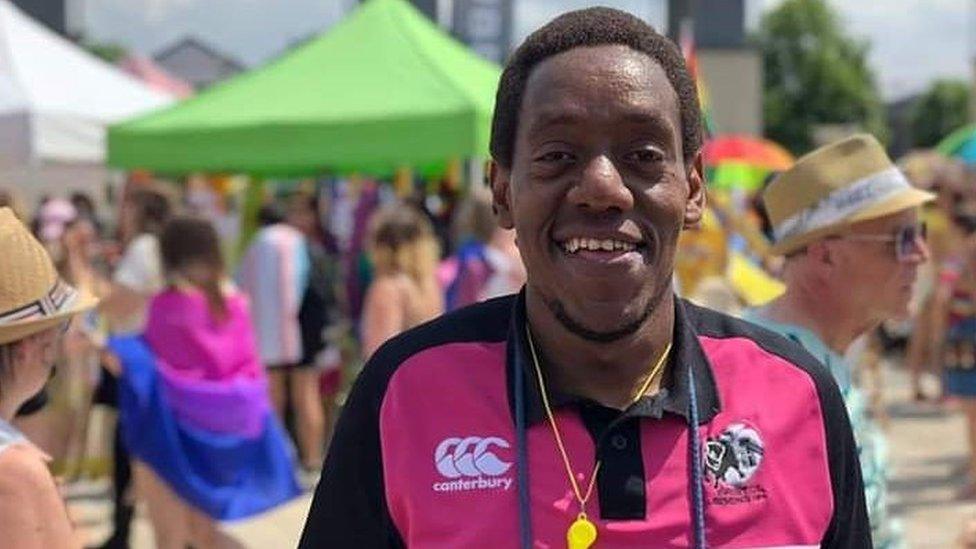Asylum seekers: Home Office taking 'substantially longer' on claims
- Published
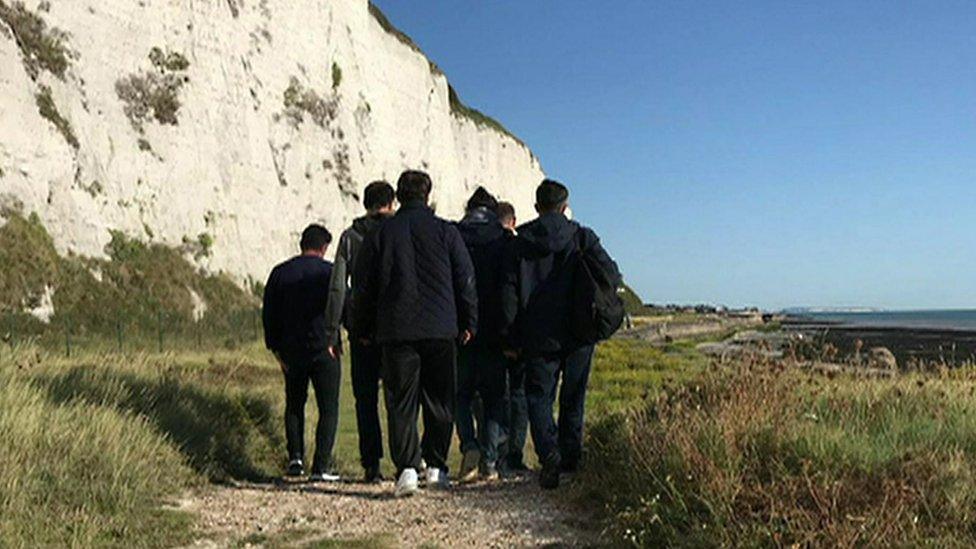
Decisions on asylum applications are taking "substantially" longer than they were five years ago, data suggests.
In 2014, 80% of applicants received an initial decision within six months, compared with around 25% now, according to the Migration Observatory.
There is also an uneven distribution of claimants, with 150 councils failing to support any, while Glasgow has 4,000.
The Home Office says it is committed to ensuring claims are considered without unnecessary delay.
In 2019, it dropped its six-month target in order to prioritise cases involving vulnerable people and for those where initial decisions are reconsidered.
The Migration Observatory, which is based at the University of Oxford, found that in the last quarter of 2018 an initial decision was made within six months in 25% of cases.
In the second quarter of 2014, that figure was 80%.
As of 30 June this year, just under 32,000 people seeking asylum were awaiting an initial decision on their case, with just under 17,000 of these applicants waiting for more than six months.
Dr Peter Walsh, a researcher at the Migration Observatory at the University of Oxford and author of the briefing, said: "There is no single explanation for the falling share of decisions taken in six months.
"Factors that could have played a role include changes to policy and management, the complexity of the cases the Home Office receives, and of course budget constraints."


Earlier this year it emerged the government had dropped a target to deal with most asylum cases within six months.
Now it's becoming clear why: The target was consistently being missed and had become virtually meaningless.
Some might argue that it's better for a decision to take longer if it's the right one, given the Home Office's poor record on getting initial decisions right - between 2012 and 2016, 40% of asylum refusals that went to appeal were overturned.
And there may be merit in the department's argument that it's better to prioritise cases involving the most vulnerable refugees rather than strive to get claims determined in an arbitrary time limit.
However, the concern is that as delays get worse, the uncertainty and stress levels increase among some of the UK's most marginalised and traumatised groups of people.

How does someone seek asylum?
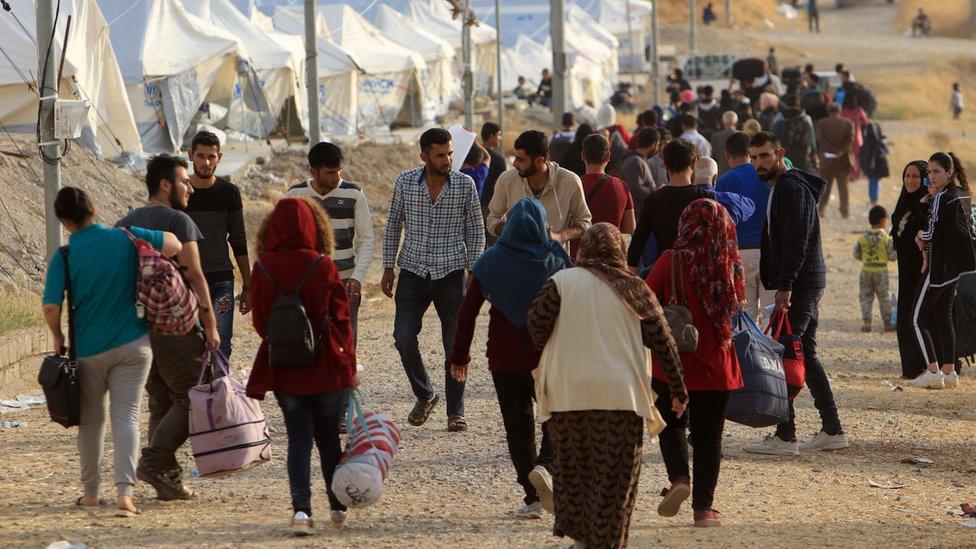
If someone wishes to stay in the UK as a refugee, they must be unable to go back to their country because of a fear of persecution, the government says., external
They should apply for asylum when they arrive in the UK or as soon as they realise it would be unsafe to return to their home country.
After they have made an application, they will go to a "screening" - a meeting with an immigration officer - where they will be asked why they want asylum.
Following that, they will undergo an interview during which they are asked to explain and show evidence of how they were persecuted in their home country and why they are afraid to go back.
In 2018, 37,453 people applied for asylum in the UK.

What happens after a claim is made?
Asylum seekers whose claims are pending cannot work or access benefits, and are instead eligible to receive financial support of £5.39 per day.
If their claims are approved they can work and access benefits.
If their claim is declined, they can appeal against the decision, with cases sometimes lasting years.

'Hugely detrimental'
The analysis also found 55% of cases were eventually successful - 38% were granted at the initial decision, and a further 17% were granted after appeal.
Most people seeking asylum in 2018 were from Iran, Iraq, Eritrea, Pakistan and Albania, with most living in the north east of the UK.
Glasgow had the most asylum seekers proportionately as of the end of June this year, with the south east and east of England housing the fewest, the report found.
Dr Walsh said the data suggests that in the year to June 2019, more than 150 parts of the UK did not house a single asylum seeker while Glasgow took in more than 4,000.
Hazar Almahmoud undertook a dangerous Aegean Sea crossing to reach Europe from war-torn Syria with her daughter before making an asylum claim in the UK
And 20 local authorities, mainly in Scotland and the north of England, host as many claimants as the remaining 362 council areas combined, he said.
"Many of these authorities will have supported resettled refugees, but nevertheless, the distribution of asylum seekers around the UK is pretty unequal", he added.
Dr Liberty Vittert, a UN Refugee Agency board member and data scientist, said the wait between making an asylum application and an initial decision is akin to "purgatory".
"That is the word I use when talking about asylum seekers awaiting a decision," she said.
"The financial support of £5.35 per day, you can barely buy breakfast for £5.35, and people say 'well, they can cook', but cook where? You are at the mercy of a country where you don't speak the language and don't know the culture."
The Children's Society said long waiting times for claims to be decided could be "hugely detrimental" for young asylum seekers.
Sam Royston, director of policy and research at the charity, added: "Young people feel powerless and unable to influence the outcomes of a decision that will affect the rest of their lives.
"They are left in a state of limbo, unable to plan for their futures."
- Published21 August 2019
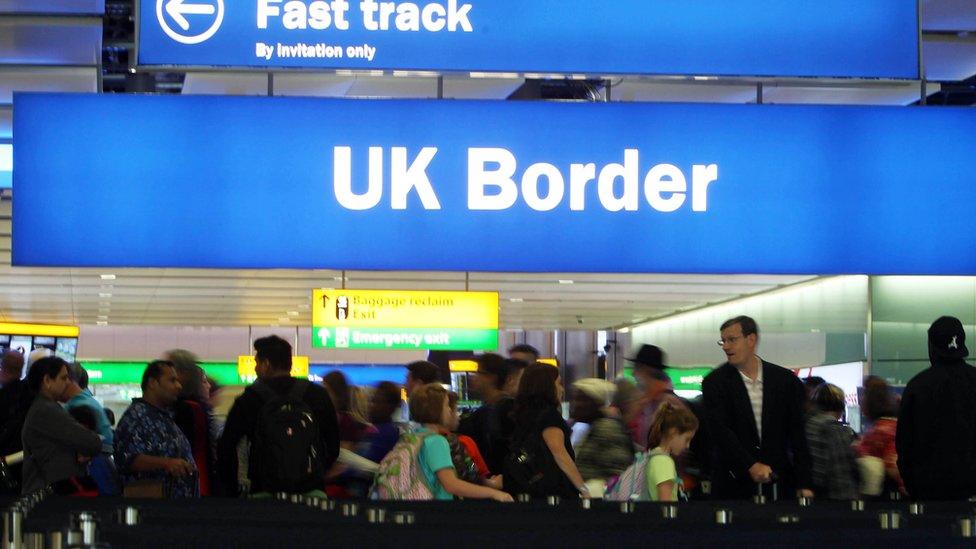
- Published22 August 2019
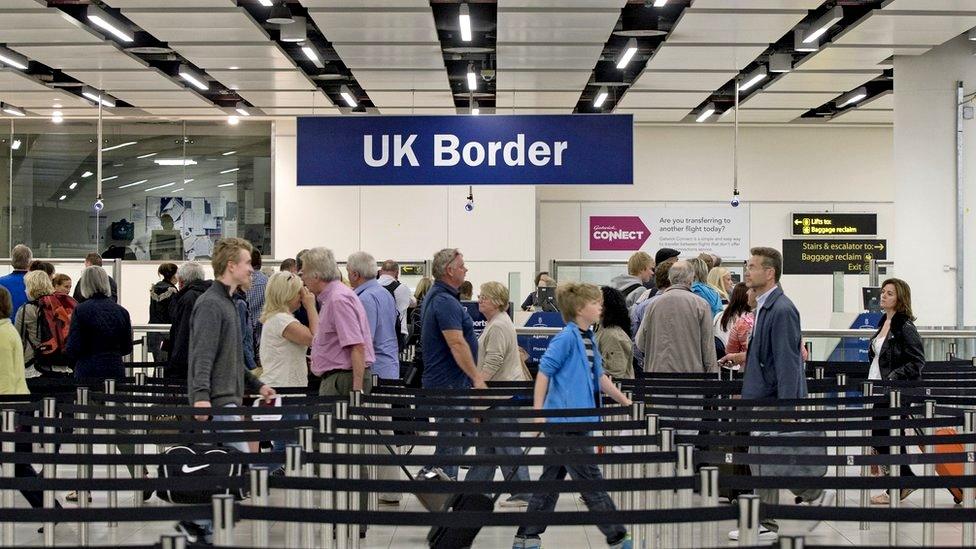
- Published25 January 2019
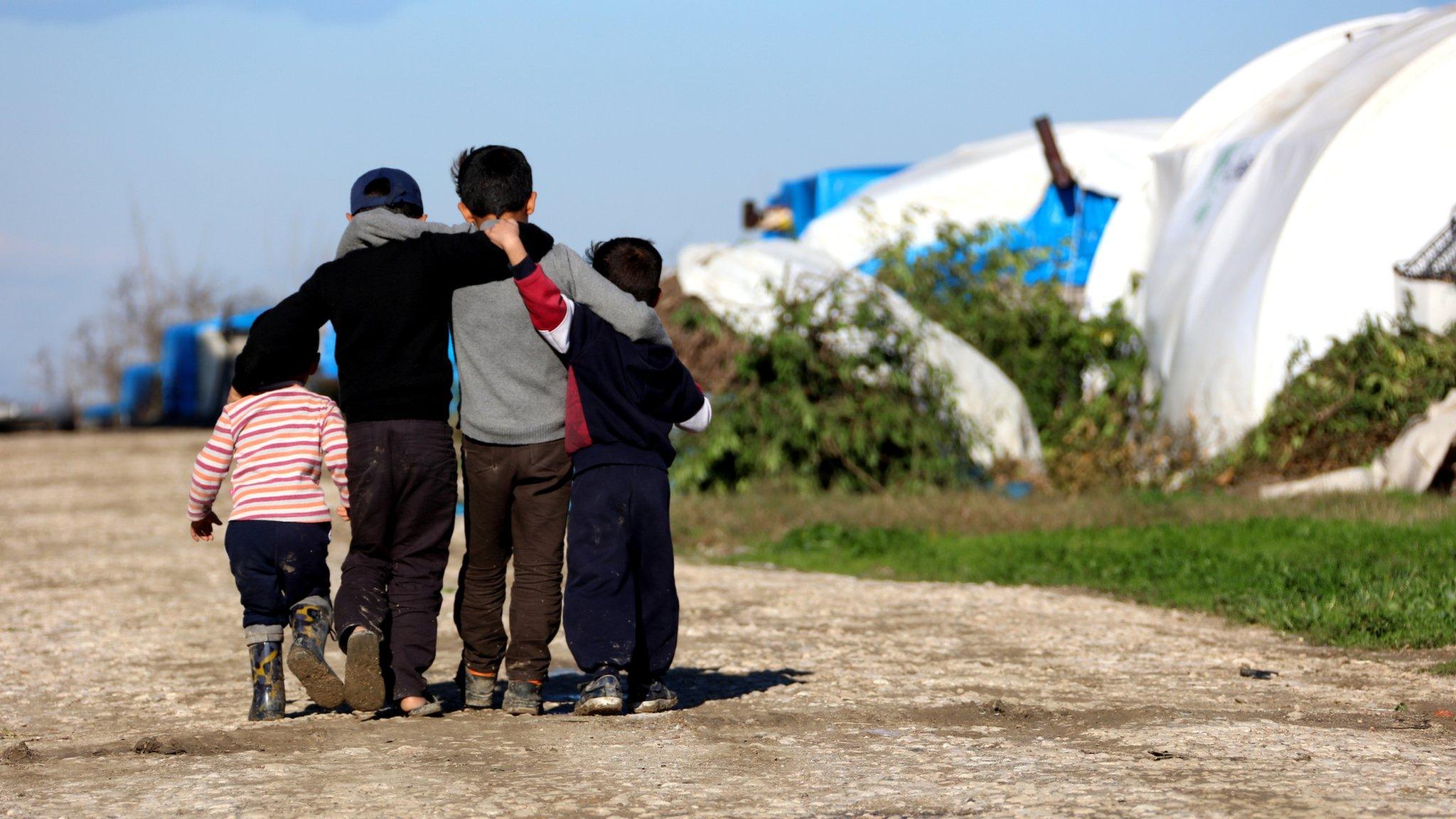
- Published20 May 2019
